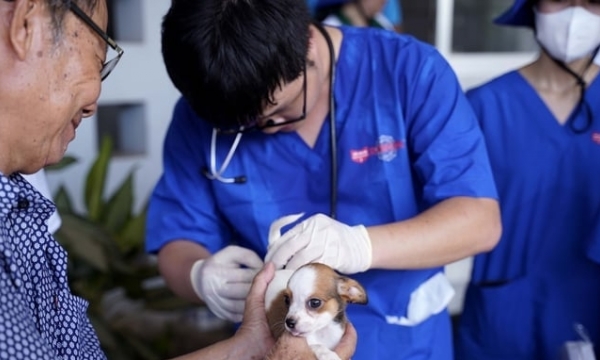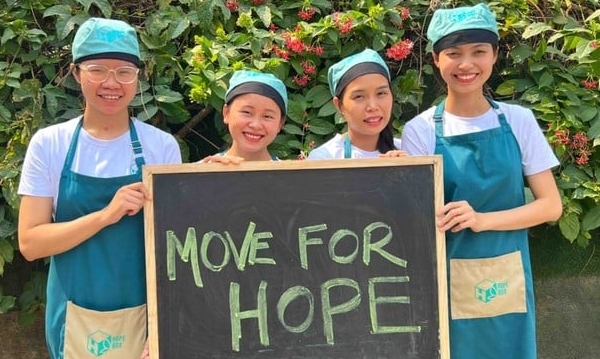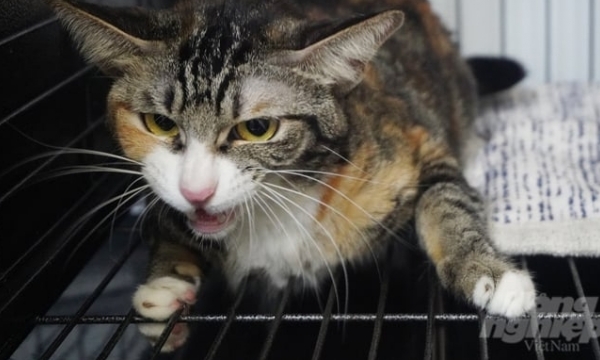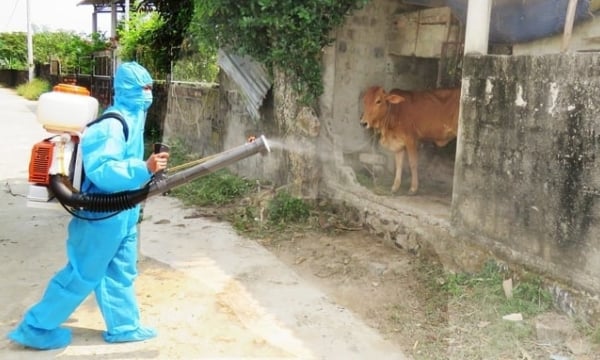May 5, 2024 | 15:00 GMT +7
May 5, 2024 | 15:00 GMT +7
Hotline: 0913.378.918
May 5, 2024 | 15:00 GMT +7
Hotline: 0913.378.918

Nguyen Quy Duong, Deputy Director of Plant Protection Department.
For this winter-spring crop, apart from neck blast, there are bacterial leaf blight, grain rot, as well as rice leafroller and planthopper. These are subjects that frequently appear on rice plants in the winter-spring crop, but neck blast is still the most common.
In face of such a situation, particularly in terms of directing, we are closely coordinating with agricultural departments and plant protection sub-departments of localities. One thing to note is that this rice crop is for the 31 provinces and cities of the North.
First of all, we are directing the Plant Protection Center – Zone IV to coordinate with localities in the area, regularly at hot spots such as Ha Tinh and Nghe An and spots that suffer the occurrence of neck blasts every year.
For example, strait bands in coastal districts are a “den” for neck blast, so we send officers to cooperate with the Plant Protection Sub-departments of Nghe An and Ha Tinh. We keep a close eye on the situation, at this time we even grasp it by day, not by week anymore. Normally there would be a 7-day notice from the plant protection sector, but now we are doing it on a daily basis. We keep a close look at the weather, climate, on every plot and every variety. That’s how we conduct our directing activities.
Secondly, in the North, right just last Friday, the Plant Protection Department held a meeting with 13 provinces which included 11 provinces in the Red River Delta, plus Hoa Binh and Phu Tho of the Northern Midlands and Mountains, to implement prevention for pests in general from now until the end of the crop. Rice blast is our top concern, and the next one is the two subjects that we must pay attention to considering this year’s situation on rice. They are the second and third spawns of rice leafroller and planthopper.
We are currently directing the prevention of the second spawn of leafroller and planthopper. If we do a good job right on this second spawn, when the main period of the late crop arrives on May 20-30 which is also around the time of the third spawn, we may reduce the pressure of preventing the third spawn.
We are currently applying meteorological forecasting technology stations through cooperation with Weatherplus – the company that is installing these stations. By utilizing the stations we can grasp the weather forecast situation, and there is one that are keeping a very close eye on it. For the past three years, we have been using the IMETOS station to have predictions and give directives on blast disease prevention. It is very effective. Another thing is that this station can give warnings about the next seven days with great accuracy. In 2021 we had many accurate forecasts, and we were able to spray pesticides right before it rained. That is a matter of great importance.
Recently we have collaborated with Weatherplus Co. to provide training for localities nationwide, especially the key provinces such as Nghe An and Ha Tinh as well as major provinces in the Red River. We provide training on how to read those data to combine both digital transformation and frequent monitoring for practical situations since these are very important missions. And in the coming period our directives include: first of all, Crop Production and Plant Protection Sub-departments regularly mobilize officers, especially during these times when the issuance of Resolutions 18 and 19 results in farmers changing plant protection stations to agricultural service centers. There must be good coordination between the Sub-departments with these service centers to have a firm grasp of the weather condition as well as the development of pests anđ diseases in the field.
The second thing is, plant protection centers in the region, such as the Plant Protection Center – North and the Plant Protection Center – Zone IV must also assign officers to cooperate with localities to regularly check on the practical situation. Another thing about the Plant Protection Department is that Deputy Director Nguyen Thi Thu Huong is currently monitoring the pest situation in Zone IV which includes Nghe An and Ha Tinh. And in the coming period, we, including leaders of the department, will cooperate with institutes such as Plant Protection Research Institute, regional institutes and also centers to check the situation of pests in key areas.
The example includes some key areas in the North Central region such as Nghe An, Ha Tinh, Thanh Hoa or areas outside such as provinces in the Red River Delta. In cases of necessity, we will provide advice to the MARD to issue local directive documents. That is what we do in cases of necessity, added with regular and periodic inspection. The goal is to cooperate so as to guarantee prompt prevention and success for the winter-spring crop.
Nguyen Quy Duong, Deputy Director of Plant Protection Department
Translated by Samuel Pham

(VAN) Pet owners in Long An province exhibit indifference and a lack of understanding regarding rabies. They maintain the misconception that pet dogs and cats are immune to the disease.

(VAN) The STAR-FARM project is funded by the European Union and implemented in the provinces of Dong Thap, Kien Giang and Tra Vinh, with a total investment of 4.2 million Euro.

(VAN) The ecosystem and social impact business organizations (SIBs), although still modest in number, is very diverse and dynamic, they have been creating positive changes in many aspects, contributing to building a sustainable future

(VAN) Visakan Biotechnology Development Investment Company, a subsidiary of Hung Nhon Group, recently held a ceremony to commemorate its first export shipment of veterinary medicine to the Halal market.

(VAN) If temporary regulations on dog and cat ownership are approved, Ho Chi Minh city will pilot the implementation of microchipping for dogs and cats in several designated areas within the inner city.
/2024/05/02/5303-5730-6-185654_281.jpg)
(VAN) Dr. Pham S, Vice Chairman of Lam Dong Provincial People's Committee: 'Lam Dong has attracted 80 FDI enterprises and 1,550 domestic enterprises to invest in agricultural development, with 150 agricultural cooperatives applying high technology'.

(VAN) An outbreak of Lumpy Skin Disease has occured across four districts in Quang Binh province, prompting local veterinary forces to strengthen prevention efforts.